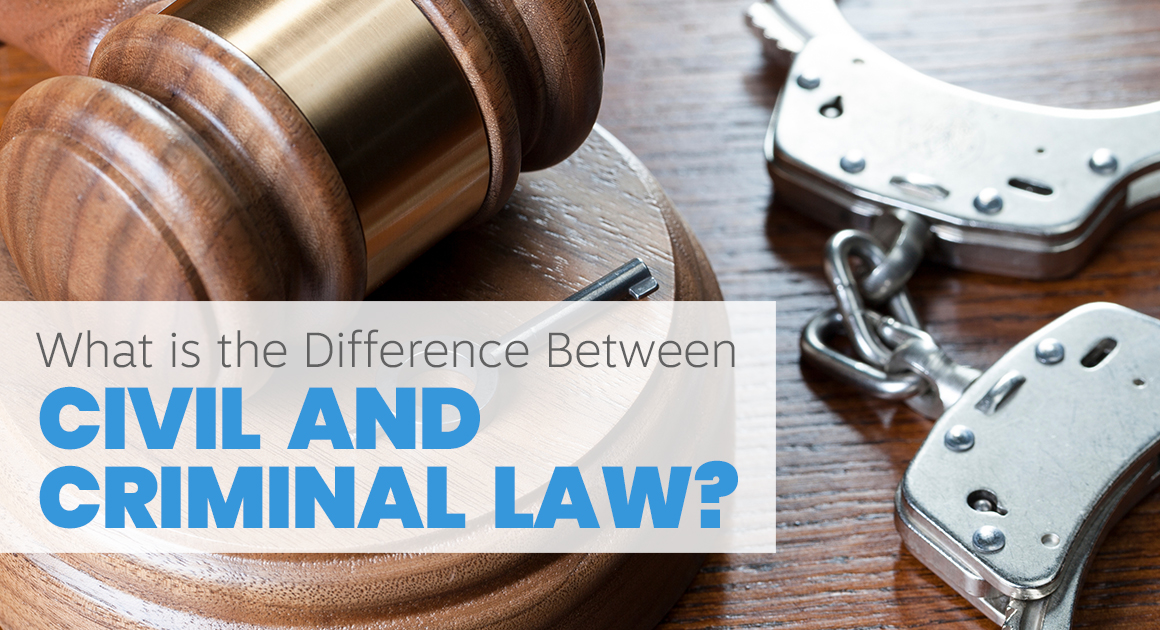The legal system addresses two types of cases in the United States; civil and criminal. Civil cases result from a dispute between individuals, often resulting in a lawsuit to identify what is owed to one another. On the other hand, criminal cases are prosecuted by the state, even if harm is done to an individual. Let’s look at the difference between civil and criminal law.
This blog is for informational purposes and should not be considered legal advice.
Civil Law Cases:
- A legal dispute between two or more parties usually involves suing for monetary compensation or damages. The defendant in a civil case does not have the right to an attorney and must represent themselves if they cannot afford one. The most common types of civil law cases deal with:
- Property, i.e., damage, foreclosure, back-rent, or un-paid personal taxes
- Work-related personal injury, automobile accident, or assault
- Divorce Proceedings
- Child Custody
- Purpose: Civil law cases are filed by a private party, where a Defendant can be liable or not liable. The Burden of Proof is based on the preponderance of the evidence (meaning it was more likely than not that the act under dispute occurred in a certain way). Civil cases can go to trial with a jury but are typically decided by the judge.
- Types of Punishment: Compensation is awarded for injuries or damages. However, both the claimant and defendant can appeal the court’s decision.
Criminal Law Cases:
- Crimes are considered to be offenses against society as a whole. The defendant is entitled to an attorney and will be provided one by the state if they cannot afford one. The most common types of criminal law cases deal with:
- Theft
- Assault
- Murder
- Robbery
- Purpose: Criminal law cases are filed by the state or government. The Defendant can be found guilty or will be acquitted of the charges if not. The Burden of Proof must be proved beyond a reasonable doubt. Most criminal cases almost always allow for a trial by Jury.
- Types of Punishment: Criminal cases often have more significant consequences, result in the possibility of jail time or even the death penalty, and involve paying fines.
It is important to note that there are times when you can be exposed to both civil and criminal liability for the same action, even though these cases are handled very differently. If you or a loved one needs legal help to better understand the difference between civil and criminal law cases, contact the Law Offices of Reginald Keith Davis. We have the experience you can trust to protect your rights. Contact now @ (913) 299-8789 for your free and confidential consultation.

